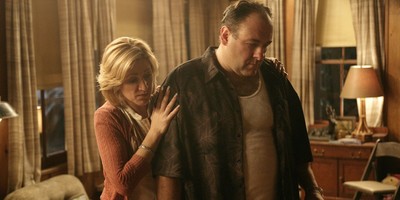"Rick Santorum was a sitting senator who, in re-election, lost by 19 points," Donald Trump, a Mitt Romney supporter, said recently. "Then he goes out and says, 'Oh, OK, I just lost by the biggest margin in history, now I'm going to run for president.' Tell me, how does that work?"
Why? Santorum explains it mostly by saying '06 was a terrible year for Republicans. Indeed, the GOP, in the sixth year of George W. Bush's time in office, did lose control of both the House and Senate. But why did Santorum lose so badly?
The biggest policy reason was Santorum's outspoken support for the war in Iraq. By November 2006, the war was going badly and threatened to turn into a full-scale catastrophe. President Bush resisted calls to change course. While Santorum's Democratic opponent, Bob Casey, called for a new policy, Santorum stuck with the president, and with the war. He even made it his primary focus in the last days of the campaign.
The voters clobbered him for it. In Pennsylvania exit polls, 61 percent of voters said they disapproved of the war. Santorum lost among them, 15 percent to Casey's 85 percent. Among the largest subgroup of war opponents, the 42 percent of voters who said they strongly disapproved of the war, Santorum was routed 93 percent to 7 percent. That by itself was enough to doom any hopes for a third term.
Santorum didn't lose just because of the war. The economy was also an issue in Pennsylvania in 2006, and Santorum lost 66 percent to 34 percent among voters to whom the economy was a critical issue. Santorum even ran disappointingly on values issues, his usual strength, splitting the vote 50-50 among those who said values were extremely important.
Recommended
But it wasn't all issues. Santorum also made personal decisions that came back to haunt him in 2006. For example, even though he owned a modest home in Pennsylvania, he moved his family to a much nicer house in Virginia, leading to charges not only that he had abandoned his home state but also that he had gone native in Washington.
In Virginia, Santorum kept his home-schooled children in a program run by the Western Pennsylvania Cyber Charter School. That cost Pennsylvania taxpayers thousands of dollars a year, and some of Santorum's political opponents demanded that he reimburse the state. "Just pay the money back," Casey said to Santorum in one debate. "You ripped off the taxpayers. Pay it back." Santorum declined, and an adjudicator ruled in his favor, but the school issue highlighted the fact that Santorum had left Pennsylvania behind.
Finally, there was Santorum's personality. In the Senate as well as in his home state, Santorum often struck people as arrogant and headstrong, preachy and judgmental. Even today, he sometimes becomes so involved in an argument that he seems intent more on winning the argument than reaching some sort of useful agreement. Throughout his career Santorum has always maintained that his forthrightness means everyone knows where he stands. Sometimes it means people know they don't like him.
Looking back on 2006 in private conversations with friends, Santorum is said to understand that he sometimes came on too strong for the voters' comfort. The question for today is how much he has changed. There's no doubt he still struggles a bit with the Old Rick: He often seems determined to get the upper hand in disputes that he probably shouldn't be having in the first place.
The reasons for Santorum's defeat are too complicated for a 30-second ad or a brief answer at a debate. He can blame a lot of factors, but in the end he was most responsible for his own fate. Now, if Santorum's presidential campaign continues to soar, he'll likely have to discuss the '06 defeat more. The Romney campaign will point to it as proof that Santorum can't win the White House. Santorum's job is to tell voters -- and prove to them with his actions -- that he has learned from his loss, and that he's a better candidate for it.

























Join the conversation as a VIP Member